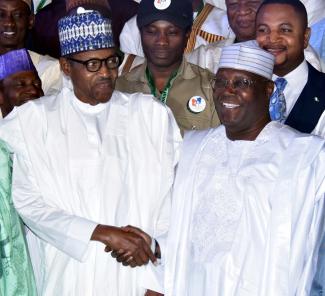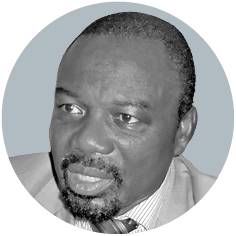Blog
Presidential legitimacy

Democracy depends on people’s trust. Trust, in turn, depends on reliability. That Nigeria’s Independent Electoral Commission postponed elections on short notice last week has further eroded citizens’ faith in public institutions. The elections were scheduled for Saturday, but they were cancelled a few hours before they were set to begin. The election commission argued that it could not guarantee things would go smooth. They will now be held seven days later.
The postponement is not only embarrassing, however, it will actually have an impact on the turnout. The reason is that many people travel home to cast their votes. They are registered where they grew up, but now live somewhere else. Migration from rural to urban areas is strong in most developing countries. Many of those who made the trip last weekend had to return to work and will not be able to make the trip again next weekend. Problems can easily arise if some people conclude that the election postponement was actually an act of voter suppression.
President Muhammadu Buhari, who hopes to be re-elected, has declared his dismay. According to him, the electoral commission had “given assurances, day after day and almost hour after hour that they are in complete readiness for the elections. We and all our citizens believed them.” (https://www.theguardian.com/world/2019/feb/16/nigerian-elections-postponed-by-a-week)
Not everyone believes him however. Supporters of Atiku Abubakar, the leading opposition candidate, believe that the postponement actually increases Buhari’s chances. Abubakar himself has said so, accusing the government of having played a role in the postponement: “Their plan is to provoke the public, hoping for a negative reaction, and then use that as an excuse for further anti-democratic acts.”
So far, the postponement does not seem to have triggered unrest. Indeed, previous elections have been postponed in Nigeria, so voters are used to this kind of inconvenience.
The electoral commission’s performance is unacceptable nonetheless. Malpractice of state institutions is not only relevant when it causes violent protests. Moreover, riots may occur should the result of the elections next weekend (if they take place) be in dispute. If Buhari wins by only a narrow margin, his legitimacy will definitely be in doubt, whether there is violence or not.
We must hope that things will go well. That will be the case if either Buhari or Abubakar wins a convincing majority.
Nigeria is Africa’s most populous country. It has many serious problems, including terrorism and wide-spread poverty, but it has been under democratic rule for two decades, after having previously suffered several spells of military dictatorship. Indeed, Buhari himself headed a military government in the mid-1980s. The autocratic rule of Sani Abacha in the 1990s, however, was so destructive that military meddling in politics has become discredited.
Buhari was elected president four years ago, beating Goodluck Jonathan, the incumbent. The peaceful transfer of power was celebrated as evidence of democratic progress with repercussions throughout the entire continent. Africa needs presidents whose legitimacy is not in doubt. So far, the election postponement has only been embarrassing and destructive. It would be a disaster if it undermined Nigeria’s democracy.












